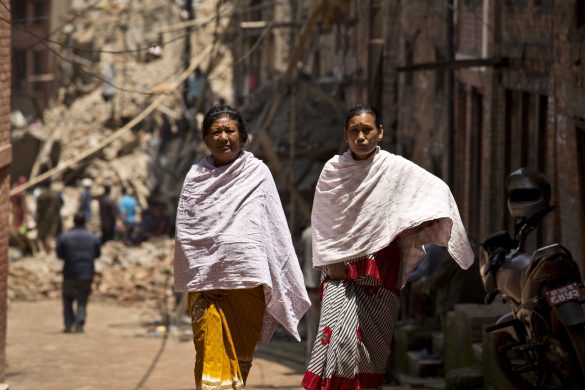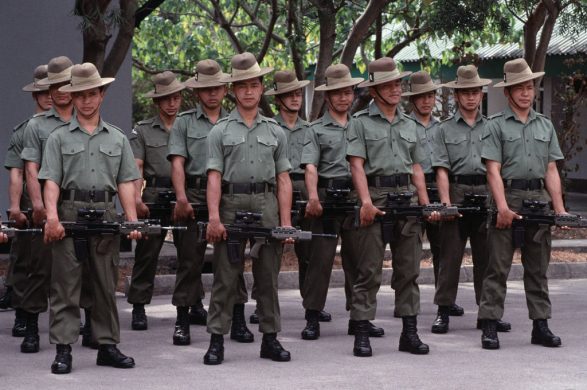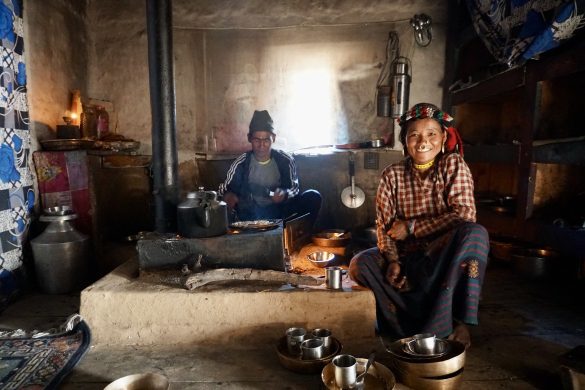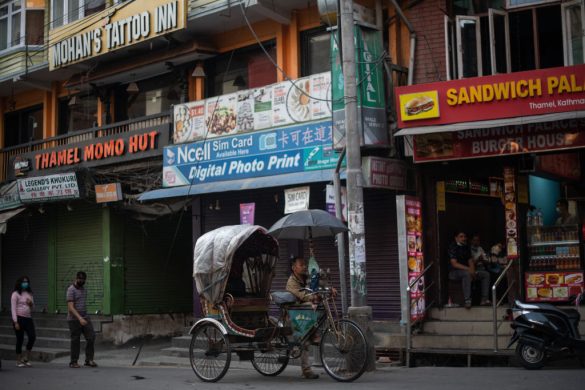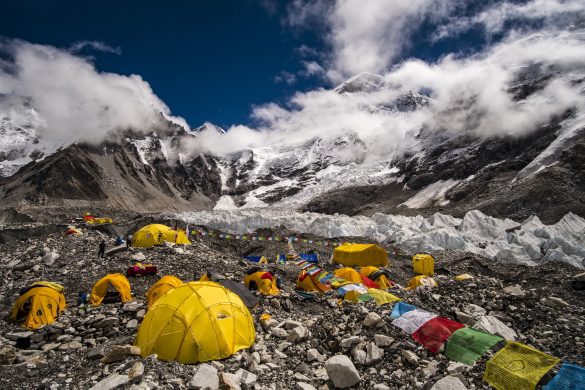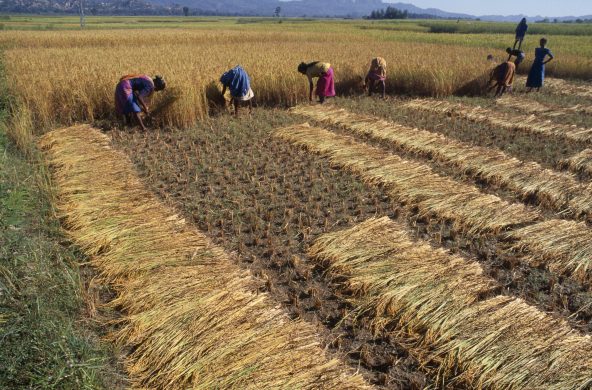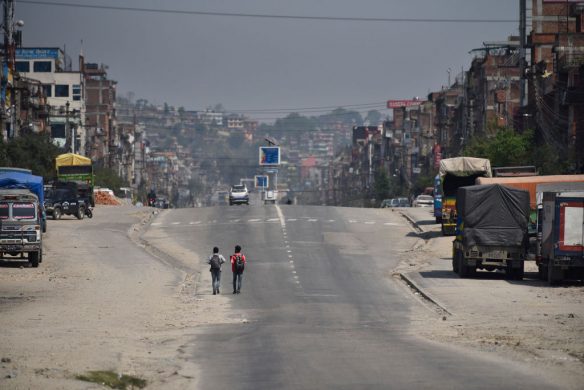KATHMANDU 8 May 2015 (WFP): Two weeks into the earthquake relief operation, the United Nations World Food Programme (WFP) is warning that food is an increasingly urgent need as it overcomes severe logistical challenges to reach hundreds of thousands of survivors in some of the hardest-hit and most remote areas of Nepal.
WFP, with its humanitarian partners, has distributed food for 300,000 people since the quake and is bringing in more helicopters and engaging multiple fleets of small trucks to get supplies to hard-hit rural areas where roads are poor or non-existent.
Forsyninger ind via Indien
WFP is also opening a land route from India to take pressure off Kathmandu airport. But WFP, funded entirely by voluntary contributions from governments, companies and private individuals, is struggling to raise money for this complex and costly operation.
“The people of Nepal are resilient, but we can’t expect families to be living in the rubble of their homes, with little food, no roof over their head and the monsoons coming,” said Richard Ragan, who is coordinating WFP’s relief operation.
“We in no way want a lack of resources to force us to limit the assistance we’re providing.”
After the initial focus in the relief effort on search and rescue, shelter, water and medical supplies, food is now becoming an increasingly urgent need.
Mistede alt
One of the millions of people affected by the disaster is Sanjay Tamang, a father of three from Sindhupalchok district. He is able to feed his family after receiving rice from WFP.
“Our house was completely destroyed. We have nothing left except for the clothes on our back,” he said.
Many of those affected in the most remote rural areas were subsistence farmers who lost the crops that were harvested just before the quake hit. Families urgently need food to carry them over until the next harvest while they rebuild their lost livelihoods.
WFP’s emergency operations are only four per cent funded so far, with much of the food distributions and common services provided to date enabled by internal resources which are reaching their limit.
It is vital that the response from the international community matches the immense needs of the people of Nepal.
Fremhæver Danmark
WFP is grateful for contributions received so far from Denmark, Liechtenstein, private donors and the UN’s Central Emergency Response Fund (CERF).
Pledges have been made and contributions are also expected to arrive from Canada and the United States of America.
The United Kingdom Department for International Development funded a Humanitarian Staging Area that opened at Kathmandu’s international airport a month before the earthquake. This relief dispatch hub is the base from which WFP provides logistics services for the wider humanitarian community.
The European Union funded a network of food security monitors in Nepal, NeKSAP, which collected information for WFP’s rapid assessment of the earthquake’s impact on food supplies.
WFP needs US$116.5 million to provide food for 1.4 million people over the next three months. An additional US$34 million is needed to provide logistics, telecommunications and air services for the humanitarian community. An online appeal has been launched at www.wfp.org/nepal.

